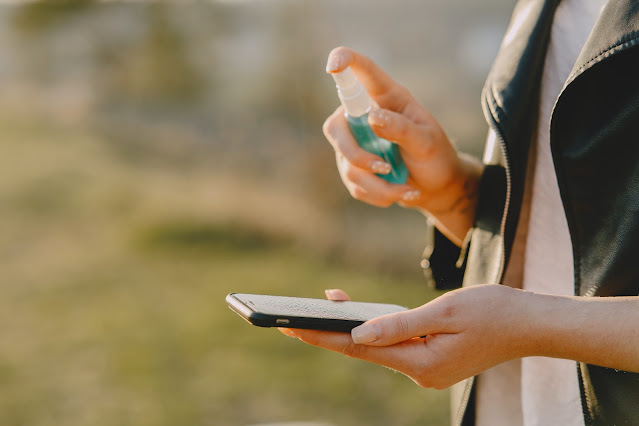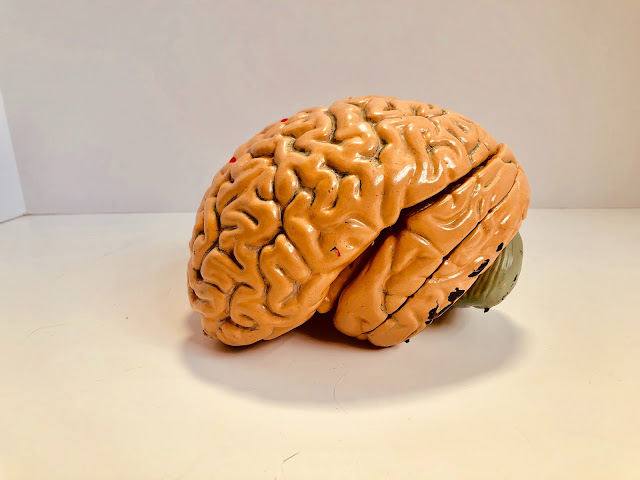This is what happens when you are teaching a course about societal trends, and COVID enters the scene
As I have mentioned in a previous post, I have been teaching a course about Digital Mindset during this second semester. An interdisciplinary course where students from different majors came to, in a relaxed setting, learn and talk about the different societal and cultural trends that are happening and the role that digital has for good and for bad.
And COVID happened.
Just a few days ago, as I was starting to review the final assignment deliveries from my students, one of them mentioned something that I had honestly not realized until that moment: how relevant all course topics are under this "new normal" we are starting to accept.
I have no merit in this. What the COVID-19 crisis has done is to increase and accelerate the changes that were already happening at a slower pace. But it is nonetheless interesting to me how much the conversations we had just a few weeks ago had been incredibly amplified.
There were six units in this course. I won't talk about Unit 5 as it was a special unit regarding COVID which kind of comprised everything I have written here. But let's take a look at the rest.
In many eastern and western countries around the world, citizens have been spending most of their time at home. No restaurants, no outdoor sports, no nothing. So we have taken the safe route of... watching Netflix. And it has been a clearly successful route for them, as the linked article and the image below show.
 |
And Disney+ was launched in some countries in Europe around the time we were starting to wonder what else to watch. The results were undeniable.
At the class we also discussed how the workforce distribution had been changing during the latest years. The liquid economy was growing. Now this is in jeopardy: will the new normal force more people become freelances and entrepreneurs? Or will a shrinking economy make small companies bite the dust, with the biggest companies becoming even bigger? This, we do not know yet. But we do know that remote work is here to stay. Huge corporates that were even against remote work have now been forced to accept, and then embrace, this new way of working and collaborating. It has been a shock plan, and whoever thinks we have learnt how to do it, has clearly no kids, elder parents or other responsibilities to deal with while working 9x5 from home.
Then we went on to talk about how education would be affected by new technologies. Again, this course does not put technology in the middle of the discussion. It puts society and culture there, and sees how technology affects the overall context. COVID again becomes the example of this: suddenly, all universities, high schools and schools were forced to switch to online-only in a matter of days. There were some colleges and business schools who were perfectly prepared, who had invested for years in digital offices and online/blended courses. These were able to switch from one day to the next, and had technologies and best practices ready to help those teachers who were not ready at that time. Other Higher Education institutions, and most primary and seconday education schools were NOT ready at all. But they also were able to quickly select tools and copy best practices to at least give their students a chance to continue with their studies. I have seen the efforts done by some institutions and I have to say it's been amazing. But it comes with a cost: untested tools, bad practices all over the place (overteaching, wrong estimate of the effort required, which leads to teacher burnouts, etc.) Some strategists foresee a huge impact on Higher Education in terms of fewer students, specially international ones, and a move towards online.
Unit 4 and 6: Development of digital products and AI/Quantum Computing
The last session before the quarantine started in Spain, and the last one before the end of the course were about understanding how digital products are built. Not many people outside of the industry actually know the complexity of building digital products. Not being "physical" means for many people that they should be cheaper and easier to build. While the first part is actually true, building global tools is still extremely expensive in net terms, since these products need to serve millions, even billions of users around the globe. But the second part is absolutely false, as anyone who has been forced to find a bug in a digital product with hundreds of thousands or millions of lines of code. As, I believe, Bill Gates said once, a digital product is an engineering feat.
Building digital products to fight COVID has also been at the forefront of the news. Controversies about data privacy and the intentions behind some initiatives, even about how different societies handle these issues, have filled the thoughts of many of us during these weeks. The balance between helping governments trace COVID infections while minimizing the threats underlying the access to personal data will be around us for many months and years after this. And it is teaching many people about how technology itself is not useful, since it is already embedded in our society, with its rules and regulations.
Another topic has also been in the news in a constant way: how useless advanced data manipulation algorithms, such as advanced statistics or even AI, are, if the data quality is low. In Spain, each region has been providing infection and disease information in different formats and with different definitions, converting deep analysis in something beyond challenging. Many people, with their best intentions, have tried to build prediction models. It's been proven almost impossible except in some specific and short-term cases. Again, we have now learnt that AI will be as strong as the data quality behind it.
So it seems our society is upside down. Whether this will be a small bump in our journey or a life-changing event, time will tell. But having had to think about these issues just a few weeks before it happened has caused an, to me, interesting reflection about where we are going.
Photo by Odenike olanrewaju on Unsplash






Comments